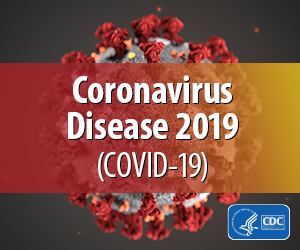(Updated) March 20, 2020
*If you believe you are experiencing a medical emergency, call 911 immediately, or seek immediate care from the nearest emergency room.
Do not rely on communication through this website for urgent medical needs.*
As with any emerging infectious diseases, it is important to remember that healthcare personnel and caregivers are equipped with the appropriate training, procedures and equipment to safely care for all patients while minimizing risk for the spread of infectious diseases. EMS clinicians including American Ambulance personnel are trained in the necessary safety measures to protect both patient and care provider from communicable diseases like the Novel Coronavirus. Through vaccination, proper personal protective equipment (PPE), annual TB testing, isolation protocols, CDC recommended disinfectant supplies and a number of other practices, we are continuing to take all precautionary measures to protect and up-hold the safety and health of our community.
Information Resources

Coronavirus Disease 2019 (COVID-19) Situation Summary
Source: Center for Disease Control and Prevention (CDC). This is an emerging, rapidly evolving situation and CDC will provide updated information as it becomes available, in addition to updated guidance. Please refer to the CDC website for the most up to date information.
CDC is responding to an outbreak of respiratory disease caused by a novel (new) coronavirus that was first detected in China and which has now been detected in almost 90 locations internationally, including in the United States. The virus has been named “SARS-CoV-2” and the disease it causes has been named “coronavirus disease 2019” (abbreviated “COVID-19”). Additional cases have been identified in a growing number of other international locations, including the United States. There are ongoing investigations to learn more. A multi-agency Federal response is ongoing at this time to monitor the outbreak and implement preparedness and response activities. Among those agencies, the CDC is following and addressing the clinical aspects of this issue.
Coronaviruses are common throughout the world and typically cause mild to moderate illness. COVID-19 is a member of this family, which includes SARS-CoV and MERS-CoV which can lead to severe illness. Limited human-to-human transmission has been observed with an incubation period of about six to 14 days. Known and suspected systems include fever, difficulty breathing, cough and potentially other mild to severe respiratory symptoms including severe pneumonia. Available treatment is currently limited to supportive care.
At this time, the potential risk of infection of the US population, including health care practitioners such as EMS clinicians is low. The Office of EMS is working closely with Federal agencies for awareness of needs of the EMS and 911 community. At this time, specific screening protocols for 911 or emergency medical dispatch are not required. If a caller volunteers information about travel to China within the past 2 weeks or close contact* potential exposure to a patient / person under investigation (PUI), that information should be relayed to responding field crews. Routine exposure control precautions will offer protection to first responders. EMS clinicians are advised to maintain a high index of suspicion in patients who present with fever and respiratory symptoms with a travel history to Wuhan, China.
Prevention and Treatment
Source: Center for Disease Control (CDC)
There is currently no vaccine to prevent COVID-19 infection. The best way to prevent infection is to avoid being exposed to this virus. However, as a reminder, CDC always recommends everyday preventative actions to help prevent the spread of respiratory viruses, including:
- Wash your hands often with soap and water for at least 20 seconds, especially after going to the bathroom; before eating; and after blowing your nose, coughing, or sneezing.
- If soap and water are not readily available, use an alcohol-based hand sanitizer with at least 60% alcohol. Always wash hands with soap and water if hands are visibly dirty.
- Avoid touching your eyes, nose, and mouth with unwashed hands.
- Avoid close contact with people who are sick.
- Stay home when you are sick.
- Cover your cough or sneeze with a tissue, then throw the tissue in the trash.
- Clean and disinfect frequently touched objects and surfaces using a regular household cleaning spray or wipe.
Update From the Fresno County Department of Public Health
Additional Resources